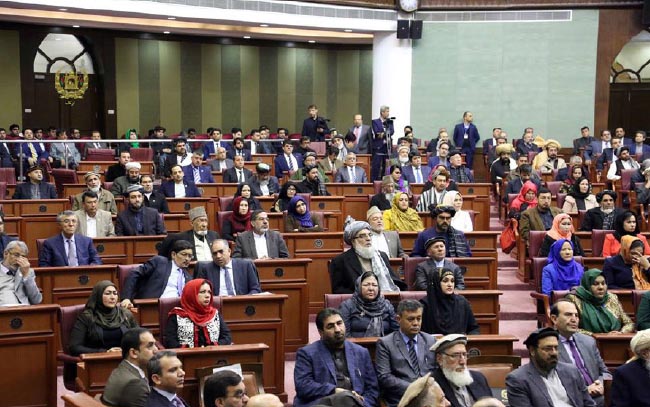In this day and age, legislatures are meant to be venues for indulging in rational debates, maintaing decency and self-esteem among members. A pragmatic and forward thinking assembly has the power to keep the executive branch in check, and undoubtedly change the course of its unviable policies. It is utterly important for any country to have a merit based system in place, filtering and rejecting uneducated and unqualified candidates, eyeing seats in parliament.
Historically, Afghanistan has had a reasonable history of succeeding parliaments in its good old days, during the reign of the late king, Mohammad Zahir Shah, it was the parliament that initiated the first modern Afghan constitution, subsequently allowing the activities of the then banned left wing political parties.
Since then, Afghanistan has experienced a devastating civil conflict, ruining almost every bit of its socio-economic infrastructures, post Bonn conference, the country adopted liberal democracy as its form of governance; the new Afghan constitution necessitated the establishment of a broad based, multi ethnic and fully representative national assembly. An assembly expected to gradually turn into a powerful house, capable of bringing the war-torn country together, and retain independence when it comes to performing their indentured duties.
The prevailing Afghan parliament has adopted all the facial structural of a modern legislature, it has almost as many legislative committees as a U.S. congress may have, but it falls short when it comes to having patrons with the right expertise, and know how to draft legislations within the best interest of their constituents. Not to mention, a businessman is setting on the foreign relations committee, while a merely literate tribal influential is chairing the oversight committee on executive branch.
Regretfully, the resident MPs have turned the parliament into an ethnic battleground igniting an unwanted Diaspora among ordinary citizens, who normally give a cold shoulder to such cynical mindsets. Unfortunately, constructive political debates and rational approach to many critical issues is replaced by frequent personal attacks, and badmouthing each other in parliament. They have miserably failed in focusing their time and energy in fertile discussions, let alone addressing the very basic essence of their job description, that is drafting legislatures and constant oversight on executive branch.
What are the key pre-requisites for a robust legislature?
Besides having political parties with a cross ethnic and inclusive vision, setting electability standards for nominations is deemed crucial. Countries with a limited number of political parties are better off in unifying members around a national agenda on the parliament floor. For instance, BJP and Congress carry out constructive discussions representing their party’s formal stance in the Indian parliament, while the Afghan parliament lacks a similar structure to accelerate efficacy and move towards a coherent national outlook.
In Afghanistan, where the constitution clarifies qualities to hold the highest office in the state, the president, it lacks any provision to present the same for a possible legislator. This constitutional flaw provided the opportunity for many unqualified individuals to find their way into the parliament, and turn it into a place for frequent fistfights and routine intimidations.
The failure is largely part of a bad precedent set forth in post-Taliban, Afghanistan. There is a delusional conformity among ordinary Afghans, civil society and registered voters, they believe these individuals are crops of the very same society, failing to come up with efforts to weigh in on a pragmatic approach to change the status quo, and avoid voting based on relations, financial motives as well as political pressure.
In other parts of the world, it is very unusual for a MP to engage in any sort of incriminating activity outside his legal jurisprudence, astoundingly, in Afghanistan a great majority of serving MPs are either busy intimidating sitting ministers for acquiring lucrative foreign contracts or force their immediate family members for top government appointments. On several occasions when the officials have reasoned, they have been threatened with votes of no confidence.
Other countries form an independent advisory board tasked to study and prepare comprehensive eligibility guidelines for judicial, academic as well as legislature’s hopefuls. Perhaps, the independent administrative reform and civil service commission or the country’s election commission could acquire the autonomy to lead the efforts in this matter. This body can be consisted of well-known law professionals, academia, or expert from other walks of life, they will then set the criteria for candidacy, accepted code of conducts as well as all other disciplinary benchmarks including but not limited to long-term absenteeism and prejudicial approaches.
Home » Opinion » Parliament: Center for Rational Discussions or Routine Intimidations
Parliament: Center for Rational Discussions or Routine Intimidations
| Naser Koshan

